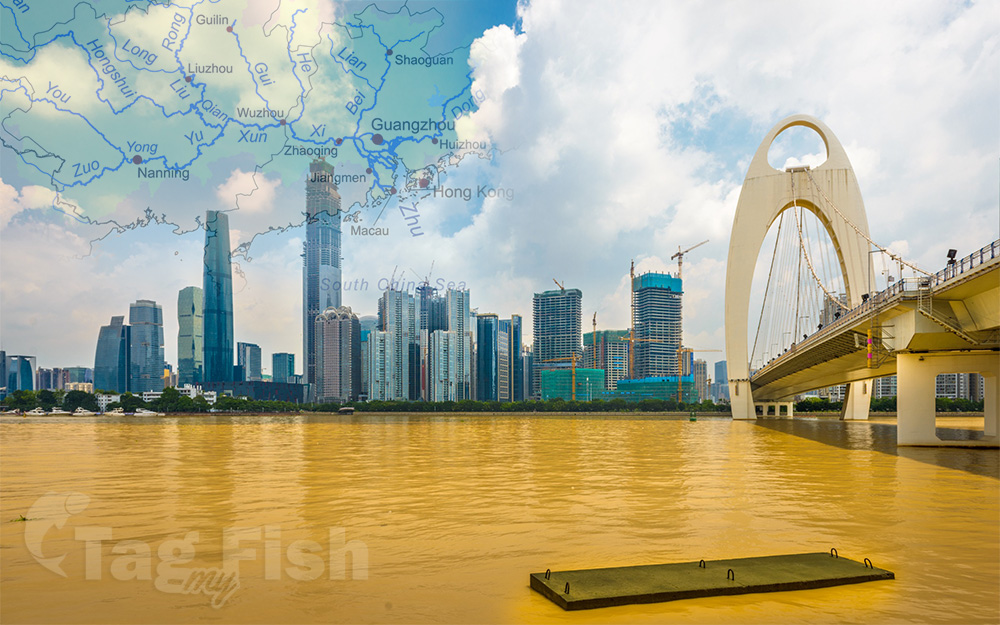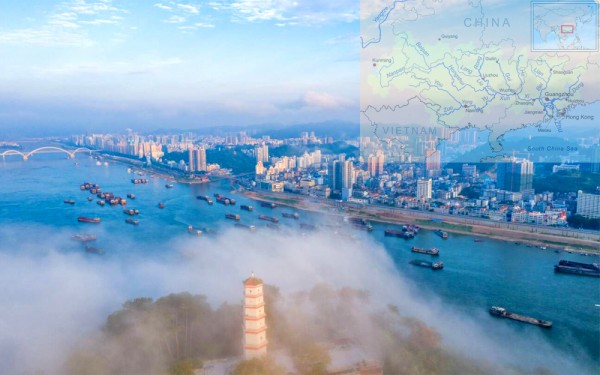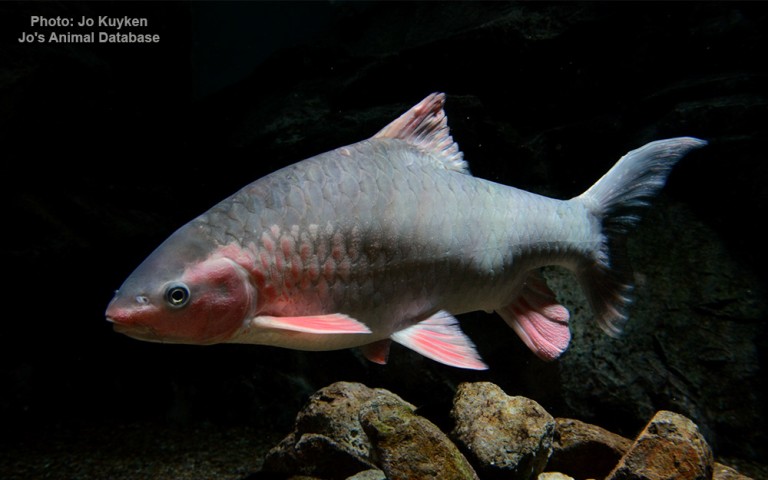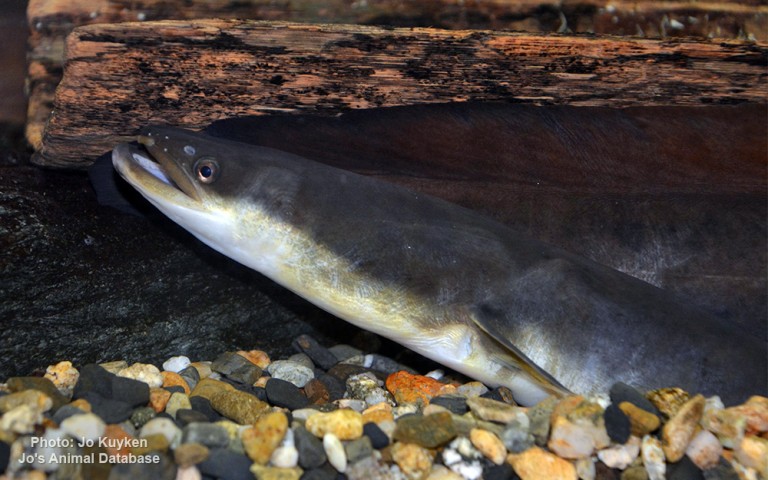Pearl River (Zhujiang)

Largest tributaries
Cypriniformes - Carps
Anabantiformes - Gouramies and snakeheads
Anguilliformes - Eels and morays
Synbranchiformes - Swamp eels
Myliobatiformes - Stingrays
Cypriniformes - Carps
Anabantiformes - Gouramies and snakeheads
Anguilliformes - Eels and morays
Synbranchiformes - Swamp eels
Myliobatiformes - Stingrays
Cypriniformes - Carps
Anabantiformes - Gouramies and snakeheads
Anguilliformes - Eels and morays
Synbranchiformes - Swamp eels
Myliobatiformes - Stingrays
The Zhujiang (the Pearl) River is the largest river system in south China, formed but the confluence of three rivers:
- Xijiang (River Xi, West river),
- Beijiang (River Bei. North river) and
- Dongjaing (Dong river, East river).
Its name comes from pearl shells having been found in the section that flows through the city of Guangzhou.
The Xijiang, the trunk of the Zhujiang (Pearl River), has its headwaters in the Nanpan River in the Wumeng Mountain Area, Yunnan, and flows past Yunnan, Guizhou and Guangxi for 2,197 kilometers before emptying into the South China Sea at Modaomen, Guangdong. Seventy-seven percent of Zhujiang (Pearl River) flow comes from the Xijiang.
Practically all the rivers of the Beijinga and dongjaing systems are in Guangdong Province.
The Beijiang, starting in the southern part of Huanan and Jiangxi, flows 468 kilometers.
The Dongjiang has its source in southern Jiangxi and a total length of 523 kilometers.
The three rivers meet at the Zhujiang River (Pearl River) Delta formed of the silt deposits at the river mount, where they fan out and flow into the South China Sea through eight outlets, mainly those at Humen, Hongqili, Modaomen and Yamen.
The Zhujiang (Pearl River) valley, which covers an area of 452,616 square kilometers, has an annual precipitation of 1,500-2,000 mm and is the region with the largest rainfall. In length and catchment area, the Zhujiang (Pearl River) ranks fourth among Chinas rivers, but its flow, eight times that of the Huanghe, is second only to the Yangtze River and provides it with a power potential of 33 million kilowatts.
It is second also to the Yangtze River in the volume of water transport, its trunk and branch rivers being navigable for a total length of 12,000 kilometers. It is navigable by ships of 10,000-ton class downriver form the Hangpu port near Guangzhou, by 1,000-tonners up to Wuzhou and by small steamboats up to Nanning and Liuzhou. Farming is well developed in the Zhujiang (Pearl River) basin. The Zhujiang River (Pearl River) Delta has a network of rivers, fertile soil, abundant natural resources, and a sense population.










